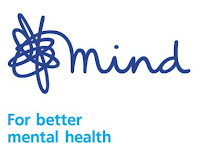Only in the few minutes leading up to the call, but bizarrely I was actually quite nervous. I suppose I was hoping that bringing back up the stuff from the past wouldn't set me back in any way; I think that I'd already broken through this barrier though after doing the research (again see previous blog) so gladly I was OK.
The first half of the call was spend discussing my experiences as a youth (albeit I go back much further than 18 years old) in terms of the support I received. I concluded thus:
- The therapy I received from the NHS psychologist wasn't particularly helpful and I had to wait a year from referral to seeing someone.
- The one session of therapy I went to at the University was fairly useless; they gave me relaxation mp3's and that was about it.
- There was nothing at school or University by way of education about mental health at all.
- Support from family and friends was fairly poor, but only because I shut them out and didn't talk about it.
- I've had anxiety for a ridiculously long time (although I knew that anyway).
- The best therapy I received was the latest by Anxiety UK via webcam, following which I've been much stronger. It also made me realise there was no 'cure' to anxiety, but moreover there are ways of managing it.
- I was confused, both about what I had and who could help me.
- Alternative options are out there - but I didn't know about them. I thought GPs were the only way through to obtaining help at that age. Signposting to various services out there would have helped dramatically.
- Embedding mental health into education, where possible, is paramount. This is tricky at school I appreciate, and whether delivered at school or Uni, it should be done by a professional (e.g. somebody who works at Mind). But raising that awareness at that stage is very important, so that students can recognise potential mental health problems in themselves and in others.
- In achieving the above, any awareness campaign should (a) be about work and social life, (b) exploit social media and (c) not mention words like 'depression' and 'anxiety,' and rather, ask questions such as 'do you feel...' or 'is going out hard...' etc. It should relate to people more.
- I've said this already, but signposting is vital. Without this, no-one knows where to go. I was asked where I'd like to see support for young people in ten years time. I said something along the lines of 'everyone knowing where to go if they need help - a full awareness and no confusion.'
And who knows, maybe I could have enjoyed more of my life, instead of looking for answers in a seemingly infinite world of confusion.
Best wishes
Al

No comments:
Post a Comment